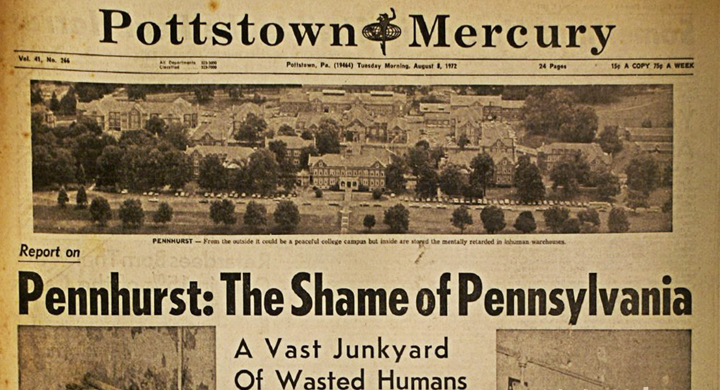Full article available in The Pennsylvania Communication Annual, 75, September 2019.
Abstract
In 2010, when Pennhurst State School and Hospital, a long- abandoned residential facility for people with intellectual/developmental disabilities, was reused as a haunted attraction called “Pennhurst Asylum,” it sparked a public debate and became an occasion for storytelling about what Pennhurst meant to the surrounding Pennsylvania community. I apply theoretical perspectives from memory studies to the case of “Pennhurst Asylum” in order to understand what is at stake when we remember institutional spaces such as Pennhurst. More specifically, this case study is based on a narrative analysis of 224 relevant news stories, reader letters, and comments appearing in Pennsylvania newspapers in 2010 and 2011. The narrative patterns I identify have ramifications for contemporary disability politics; the emergence of minority histories into official, public narratives; the role of local news in the formation of public memory; and ethical debates over how to approach popular representations of historical trauma.
Keywords: Disability history, historical asylums, commemoration, Pennhurst State Hospital, communication ethics.
